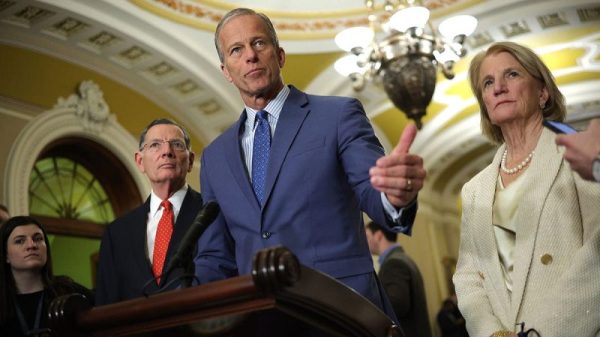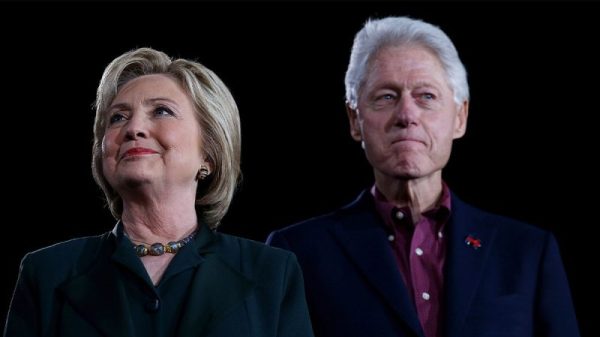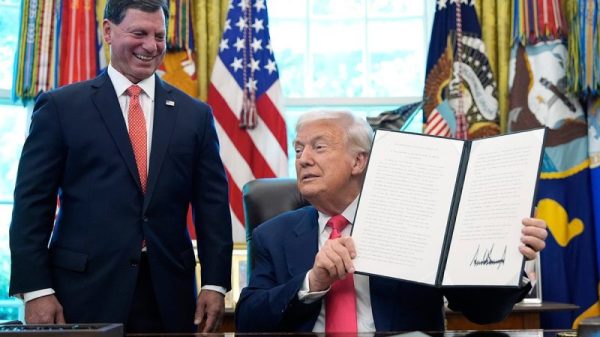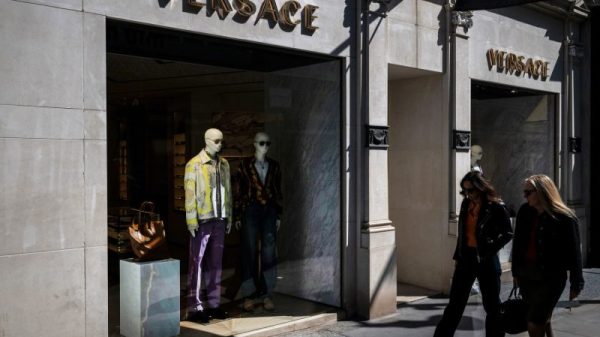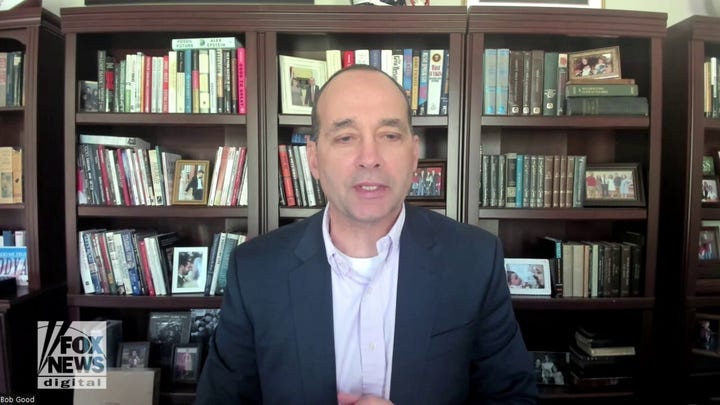Editor’s note: The following column was first published in City Journal.
The Color Revolution is restless. Beginning in the former Soviet republics in the early 2000s, it moved along the coast of North Africa with the so-called Arab Spring in the 2010s, and, into the current decade, has spread further.
The ostensible purpose of Color Revolutions—named after the Rose Revolution, Orange Revolution, and Tulip Revolution in Georgia, Ukraine, and Kyrgyzstan, respectively—is to replace authoritarian regimes with Western liberal democracies. American and European intelligence services are often heavily involved in these revolutions, with ambitions not only to spread modern ideologies but also to undermine geopolitical opponents.
The West’s favored methods of supporting Color Revolutions include fomenting dissent, organizing activists through social media, promoting student movements, and unleashing domestic unrest on the streets. Americans hold varying opinions on such efforts, but what many don’t realize is that they occur not only overseas but also here in the United States. The summer of rioting following the death of George Floyd, which ushered in the new DEI regime, was in many ways a domestic Color Revolution, advanced by progressive NGOs, media entities, and political actors.
A minor figure in these movements, a woman named Katherine Maher, has recently come to greater prominence. Maher was involved in the wave of Color Revolutions that took place in North Africa in the 2010s, and she supported the post-George Floyd upheavals in the United States in the 2020s. She was also the CEO of the Wikimedia Foundation, which runs the online encyclopedia Wikipedia, and was just recently named the new CEO of National Public Radio.
At NPR, Maher has already been embroiled in controversy. Longtime editor Uri Berliner, who has now resigned, accused her of left-wing bias and suppressing dissent. Following these accusations, I did extensive reporting demonstrating that Maher has a troubling history of arguing against the notion of objective truth and supporting censorship in the name of democracy.
Now I have gathered additional facts that raise new questions about Maher’s role as a regime-change agent, both foreign and domestic. She has brought the Color Revolution home to America.
In the first part of her career, Maher seemed to follow the wave of U.S.-backed revolutions through the Middle East and North Africa.
She had the perfect background for this kind of work. She held a degree in Middle Eastern and Islamic Studies from New York University and had studied in Cairo and Damascus. And, at every step, she had managed to connect with powerful institutions, repeating their slogans and climbing their ranks. (Maher did not respond to request for comment.)
During the volatile Arab Spring period, under a constantly rotating series of NGO affiliations, Maher went to multiple countries that were undergoing U.S.-backed regime change. Beginning in 2011, for example, she traveled multiple times to Tunisia, working with regime-change activists and government officials. In 2012, she traveled to a strategic city on the Turkey-Syria border, which had become a base for Western-backed opposition to Bashar al-Assad. That same year, she traveled to Libya, where the U.S. had just overthrown strongman Muammar Gaddafi.
During much of 2011, Maher worked for the National Democratic Institute, a government-funded NGO with deep connections to U.S. intelligence and the Democratic Party’s foreign policy machine. The organization was ‘set up to do independently what CIA had done covertly worldwide,’ says national security analyst J. Michael Waller. While initially some distance supposedly existed between NDI and the intelligence services, that relationship has devolved back to ‘the gray zone,’ per Waller, and it appears that they often work in concert. ‘NDI is an instrument of Samantha Power and the global revolution elements of the Obama team,’ Waller explains. ‘It has gone along with, and been significant parts of, color revolutions around the world. It is very much a regime-change actor.’
American adversaries such as China agree with this sentiment and have accused NDI of being a ‘second CIA.’ Some nations, fearing American interference, have banned NDI from operating in their territories. In 2012, for example, Egypt accused NDI and other organizations of serving as unregistered foreign agents and working ‘in coordination’ with U.S. intelligence to subvert the Egyptian state.
During her time at NDI, Katherine Maher was ‘part of a revolutionary vanguard movement,’ says Waller.
I have obtained access to several now-deleted blog posts written by Maher during this period, which support Waller’s thesis and shed additional light on her work at NDI. In August 2011, Maher wrote a post about NDI’s work in Libya, which was then in the midst of its revolution: Gaddafi was still alive and U.S.-backed rebels had set up a headquarters in the city of Benghazi. During the conflict, Maher wrote, ‘a member of the NDI Middle East team walked into our office and asked how difficult it would be to wire downtown Benghazi’ for Internet communications.
This was not mere democratic institution-building but a plan to provide communications to Libya’s political and military opposition, in the middle of a civil war. Maher seemed to suggest that restoring connectivity was essential to overthrowing Gaddafi’s government. (NDI did not end up executing the plan, according to Maher; Internet was restored through other means.)
The Internet, Maher learned, was a key asset on the new battlefield. The primary lesson of the Arab Spring was that Western technology—social media, encrypted messaging, mobile connectivity—had become a powerful tool of regime change. Twitter, in particular, was an asset for dissidents in Egypt, Tunisia, and elsewhere.
Over time, however, some of those dissidents grew skeptical of Maher, who seemed to be using the same platforms to penetrate activist and opposition circles. In 2016, after Maher became the CEO of the Wikimedia Foundation—to the puzzlement of some observers—one of her Tunisia contacts accused her of working with the CIA. ‘Katherine Maher is probably a CIA agent,’ said Slim Amamou, a digital activist and cabinet minister in Tunisia’s transition government, who had spent a significant amount of time with her. ‘[S]he was constantly trying to get introduced in the activist social network.’
Maher responded defensively, shaming Amamou for supposedly turning against her, and denying the charge. ‘I’m not any sort of agent,’ she said. ‘Don’t defame me.’
There is no way to discern whether Maher was an agent, asset, or otherwise connected with the CIA. But her official status, however interesting it may be to speculate about, is irrelevant. In practice, Maher was undoubtedly advancing the agenda of the national security apparatus and working to advance the agenda of the Color Revolution.
The promotion of ‘democracy,’ however, does not stop overseas. A Color Revolution has now arrived on American shores, too.
Maher’s résumé provides us with a map of modern power, connecting political revolutions overseas with the cultural revolution here at home. She has been affiliated with key foreign policy and intelligence institutions: the Atlantic Council, World Economic Forum, State Department, World Bank, and Council on Foreign Relations. More recently, she has obtained power at several key strategic assets for the flow of information within the United States: CEO of the Wikimedia Foundation, CEO of National Public Radio, and chairman of the board of the encrypted-messaging application Signal.
When Maher was selected as CEO of the Wikimedia Foundation, many members of the Wikipedia community expressed surprise. But seen through the prism of the Color Revolution, the online encyclopedia is a key strategic way station. The site defines the terms, shapes the narrative, and launders mostly left-wing political ideologies into the discourse, under the guise of ‘neutral knowledge.’ Additionally, in recent years, it has served as training data for artificial intelligence, which then incorporates Wikipedia’s biases into its outputs.
Some suspect that intelligence services have used Wikipedia as a tool in the information war. ‘The bias of Wikipedia, the fact that certain points of view have been systematically silenced, is nothing new,’ co-founder Larry Sanger told me in an interview. But he suspects more is at play, noting that research as far back as 2007 suggests that the CIA may be manipulating the site’s entries. ‘We know that there is a lot of backchannel communication and I think it has to be the case that the Wikimedia Foundation now, probably governments, probably the CIA, have accounts that they control, in which they actually exert their influence.’
Maher, for her part, was not shy about her political agenda. As I have reported, during her tenure as CEO of the Wikimedia Foundation, she advanced a policy of censorship under the pretense of fighting ‘disinformation.’ I wrote:
In a speech to the Atlantic Council, an organization with extensive ties to U.S. intelligence services, she explained that she ‘took a very active approach to disinformation,’ coordinated censorship ‘through conversations with government,’ and suppressed dissenting opinions related to the pandemic and the 2020 election.
In that same speech, Maher said that, in relation to the fight against disinformation, the ‘the number one challenge here that we see is, of course, the First Amendment in the United States.’ These speech protections, Maher continued, make it ‘a little bit tricky’ to suppress ‘bad information’ and ‘the influence peddlers who have made a real market economy around it.’
Maher’s general policy at Wikipedia, she tweeted, was to support efforts to ‘eliminate racist, misogynist, transphobic, and other forms of discriminatory content’—which, under current left-wing definitions, could include almost anything to the right of Joe Biden.
Wikipedia is important because it shapes perception and closes the circle of information production. Wikipedia replicates left-wing news reporting, news reporting replicates left-wing Wikipedia entries, and artificial intelligence replicates both. It’s a closed loop that operates surreptitiously, using its reputation for unbiased knowledge as a cover for its own disinformation.
How does NPR fit into what we might call the American Color Revolution? It is another key component in our domestic culture war. NPR has formative power in many culture-shaping institutions and increasingly represents the voice of blue elites. It is state radio, in the Soviet sense: it produces propaganda to advance its own cultural power and move the nation toward a desired end-state.
Maher understood the power of media—and radio, in particular—early in her career. In 2010, according to a now-deleted blog post that I have obtained, Maher speculated that seizing control of radio could be a way to ‘Govern a Country.’ The specific context of the post was the U.S.-supported revolution in the African nation of Cote d’Ivoire, where the incumbent president had refused to concede to a Western-backed candidate, sparking a civil war. Eventually, the opposition prevailed, took control of communications, and rules the country to this day. ‘Control over the flow of information in a closed society can be tantamount to control over the state,’ Maher wrote.
While Maher was more descriptive than prescriptive in this 2010 blog post, the implication of what she described seems clear enough: control the narrative, control the regime. The production of media works in Cote d’Ivoire as it does in America; the difference is only a matter of scale and complexity.
The same principles of Color Revolution apply to the encrypted-messaging application Signal, where Maher currently serves as chairman of the board. Signal was originally funded, in part, by the government-backed Open Technology Fund, where Maher sits on the advisory council and which has deep connections with technologies used for regime change. According to some analysts, Signal’s purpose is to provide overseas activists with secure communications; it is, in the positive sense, a way to promote dissent and spread controversial political opinion.
On the surface, this appears to be a contradiction. Maher backed dissent abroad but suppressed it at home. She not only censored content at Wikipedia but also supported deplatforming then-President Donald Trump, who opposed the domestic revolution following the death of George Floyd. ‘Must be satisfying to deplatform fascists,’ Maher wrote on Twitter, after Trump was effectively removed from social media. ‘Even more satisfying? Not platforming them in the first place.’
This is not hypocrisy; it is the politics of friend and enemy. For Maher, ‘democracy’ means the advancement of left-wing race and gender ideology all over the world. This requires elevating progressive dissidents overseas, while suppressing conservative dissidents at home. For partisans of Color Revolution, dissent and censorship are not in contradiction—they are two sides of the same coin.
It’s easy to understand Katherine Maher as a curriculum vitae—she has collected affiliations and positions, traversing the hierarchy of progressive culture—but it is harder to understand her as a human being.
Public information offers a likely clue. Maher grew up in an affluent, nearly all-white Connecticut town. Her father worked at the most prestigious firms on Wall Street and, according to family lore, her grandfather had been a spy in Europe. Her mother is a Democratic state senator in Connecticut and dutifully follows the party line; she supported Hillary Clinton for president, stands with Planned Parenthood, and donates to the ACLU.
I spoke with some of the people in Maher’s personal orbit, who have a further impression. Maher, in their telling, anyway, is immensely ambitious, calculating, and cold. She rose through the ranks of power and built a network of influential patrons, but never maintained close relationships, with some wondering whether she had any friends at all. She traveled constantly, built her Rolodex, and spoke alongside establishment players, such as former CIA director Michael Hayden, but her personal life was reportedly chaotic.
She had been through a series of relationships, apparently, and always disguised her ambition in the language of ideology—a means to power, rather than an authentic commitment. ‘That’s Katherine in a nutshell: the privileged white girl with a savior complex,’ said one contact with knowledge of Maher’s personal life.
For the better part of her thirties, Maher had her sights on powerful men in the tech sector—a high-tech entrepreneur; an early Facebook employee—but also considered finding someone lesser as she approached 40. ‘I was advised by a more senior female exec that as a woman, I ought to seek a husband who wouldn’t mind being supported,’ Maher wrote in 2020. ‘An artist, perhaps. Someone with co-equal ambition would be a drag on my career, make me less competitive.’
When Maher did get married, to corporate lawyer Ashutosh Upreti in 2023, she earned coverage in the New York Times, but it was hardly flattering. She had mistaken her first date for a job interview. ‘I thought he was more interested in being my general counsel than my date,’ Maher told the newspaper. She had refused to answer his proposal for five weeks, before relenting. They eventually settled down and adopted a designer dog.
Maher, in public and in private, then, appears to be a vessel for power, with few original thoughts. But she has a charismatic appeal and is willing to do what it takes to turn power into more power—to the delight of the institutions that have orbited around her for the past 20 years. As Wikipedia co-founder Larry Sanger told me: ‘It is getting to the point where you can’t accuse people like Katherine Maher of hypocrisy anymore, because they’re not being hypocritical. They’re actually saying it out loud: ‘We don’t really believe in this freedom stuff anyway.’’
Sanger, perhaps, is being naïve. The American Color Revolution does not exist to advance principles but to accumulate power and entrench ideologies. Freedom is a tool: sometimes it is helpful to the cause; sometimes it is an impediment. The evidence certainly suggests that this is how Katherine Maher sees the world.

